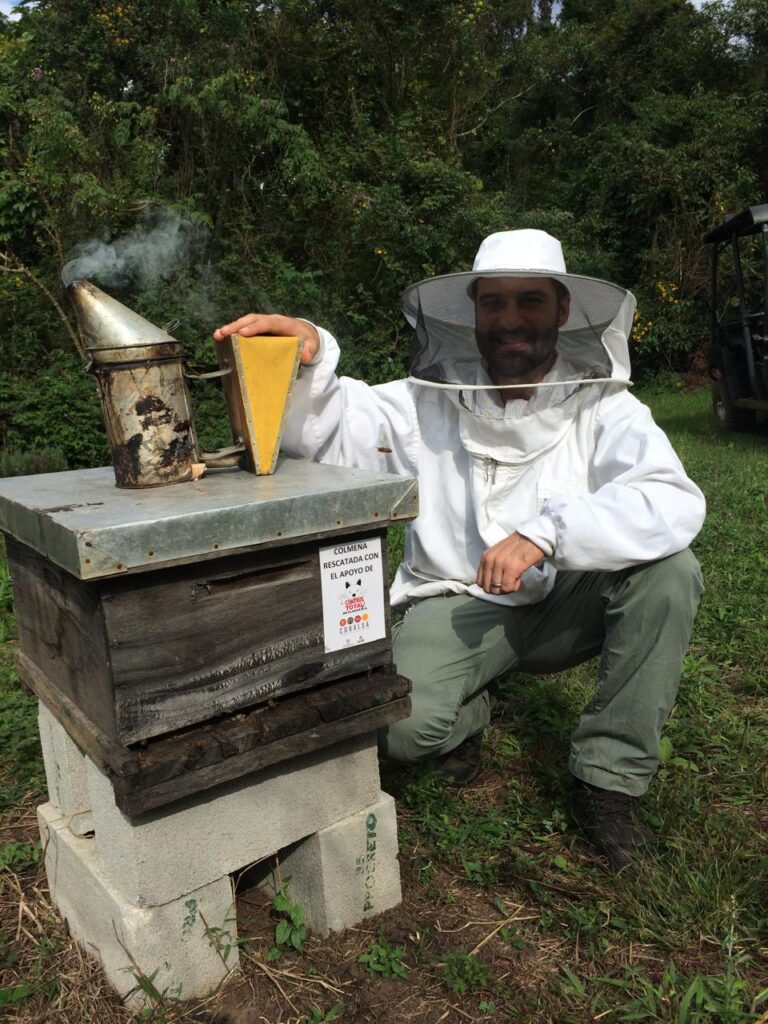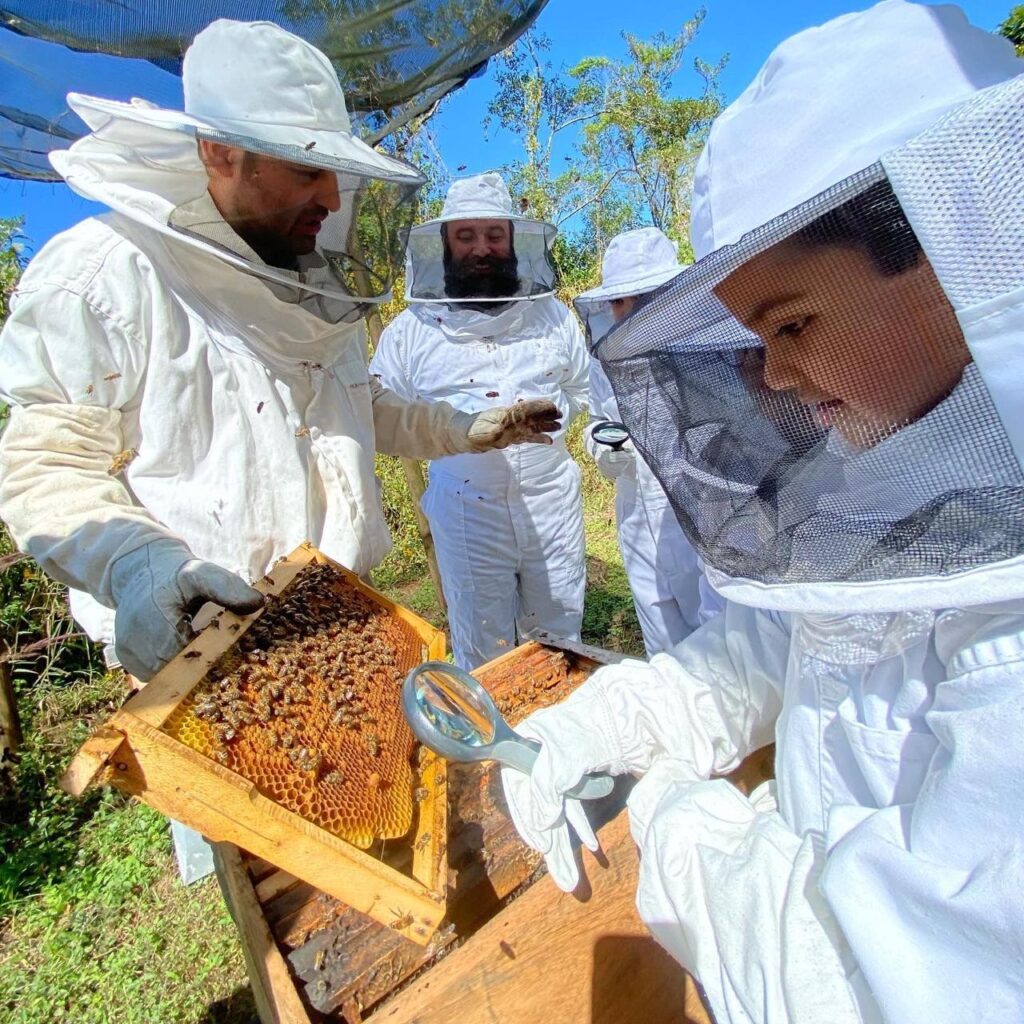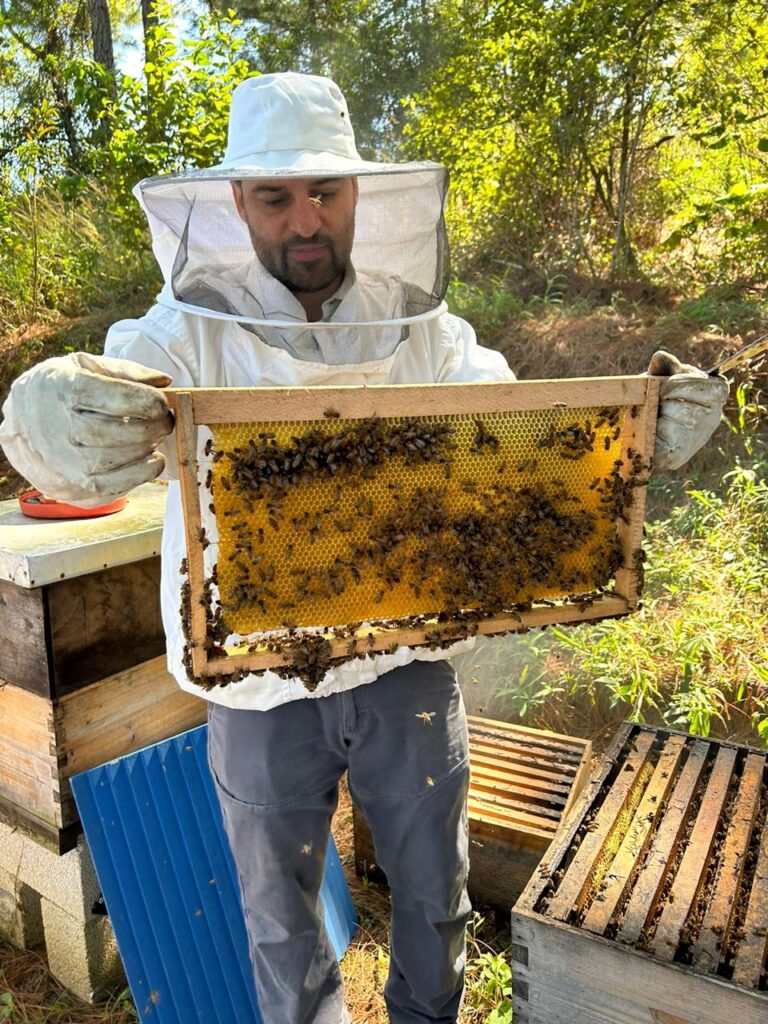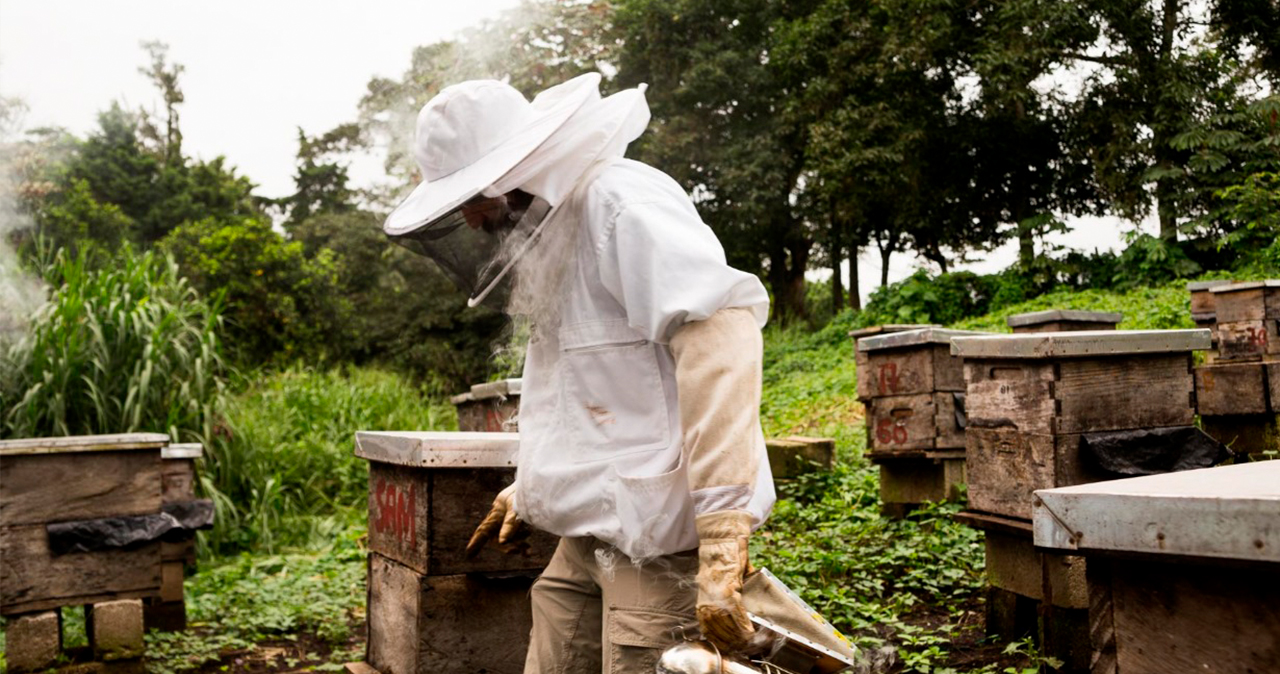Luis Eduardo Girón (Class of 2005, Guatemala) inherited the hands and spirit of a beekeeper. He watched his grandfather and father work with bees since he was a child. He remembers seeing them suit up in protective gear, and like astronauts dressed in white, carefully and respectfully approach buzzing hives to harvest honey. His deep interest in this small pollinating species, essential and irreplaceable for food security, was born in those moments.

In 2010, during the global “honey crisis” caused by colony collapse and massive bee die-offs, particularly in Europe, Luis Eduardo decided to commercialize his family’s honey reserves. He also saw the opportunity to turn the project into a sustainable and dynamic business model—not only as a response to the global urgency, but also to preserve the species, produce high-quality honey, and diversify its derivatives, like creamed honey and beeswax.
The project is named Colmena Don Antonio, in honor of his grandfather, who began beekeeping in the 1970s. To diversify products and offer something unique in the market, Luis Eduardo started cultivating bees in apiaries across various regions of Guatemala. Through diverse floral sources, the honey develops different flavors and colors.
Many factors can influence these characteristics, especially the botanical environment, which includes climate and elevation. For example, if a bee pollinates an avocado, citrus, or coffee tree, the aromas of the fruit are transmitted into the honey. This way, Luis Eduardo and the Colmena Don Antonio team have brought to market honeys from dry tropical forests, coffee-growing regions, and humid tropics—each with unique qualities.
The Adventures of Apitourism
In 2016, apitourism was born almost by accident within Colmena Don Antonio. A French chef’s curiosity about the purity of honey was the spark. The chef wanted to begin using the product in his cuisine, and Luis Eduardo didn’t hesitate: he wanted to show him that he was the beekeeper he needed, that no intermediaries were compromising the honey’s quality, and that the production process was sustainable, and that careful attention was put to flowering cycles to enhance the final product’s properties.
The chef visited the apiary, wore a protective suit, walked among the hives like an astronaut, and after the experience, confirmed the purity and quality of a honey that has now been passed down through three generations. That moment was when Luis Eduardo and his wife realized the project had the potential to become a fun and educational platform for people to learn about bees and beekeeping. Even with just a few protective suits, they launched the project, and today, people of all ages can visit and enjoy the experience to the fullest. They now host students and companies interested in learning about apiculture, biodiversity, and the importance of pollinators. “We work with universities, hotels, farmers, and the gastronomy sector. We take people to the origin of the product,” he says.

According to Luis Eduardo, there are over 20,000 species of bees worldwide, and more than 385 of them have been identified in Guatemala alone. However, less than 3% of all bee species live in colonies, like the well-known honeybees, which produce honey, live in flowers, and have adapted to nearly every terrestrial ecosystem due to their resilience to various climates and regions. But these bees are just the tip of the iceberg—many other species also play a vital role as pollinators. Over 90% of flowering plants depend on pollinators, which include not only insects but also mammals and, as recent Amazon research suggests, even some amphibians.

Luis Eduardo has also created “Air Bee and Bees”—a playful twist on the name of the popular lodging platform—for bees. These are small wooden “hotels” where bees can take refuge. In addition, he maintains an inventory of species and cultivates herbs, flowers, and orchids to promote pollination.
“At EARTH, they instilled in me the entrepreneurial spirit,” he says, explaining how the education he received—not only in Agricultural Sciences but also in areas like finance, communication, and entrepreneurship—helped him create Colmena Don Antonio and shape a far-reaching vision for its future. Luis Eduardo also believes that sharing with people from other cultures during his time at EARTH made him a more tolerant, empathetic, and humble person, both professionally and personally.
“I came from a bubble. I studied in a private school, and when I arrived at the university, one of my first reality checks was hearing my roommate say that he’d save until his third year to see if he could afford a trip back home to Paraguay. I, on the other hand, already knew I’d be going back to Guatemala in just four months, during our first vacation. That conversation taught me that not everyone has the same privileges and showed me the importance of empathy. My roommate gave me many life lessons, and even twenty years after graduation, we are still great friends.”
Like the bees, Luis Eduardo is a builder of community—of spaces where insects, animals, and humans alike can contribute good things to the world. Sweet things. Like honey.
